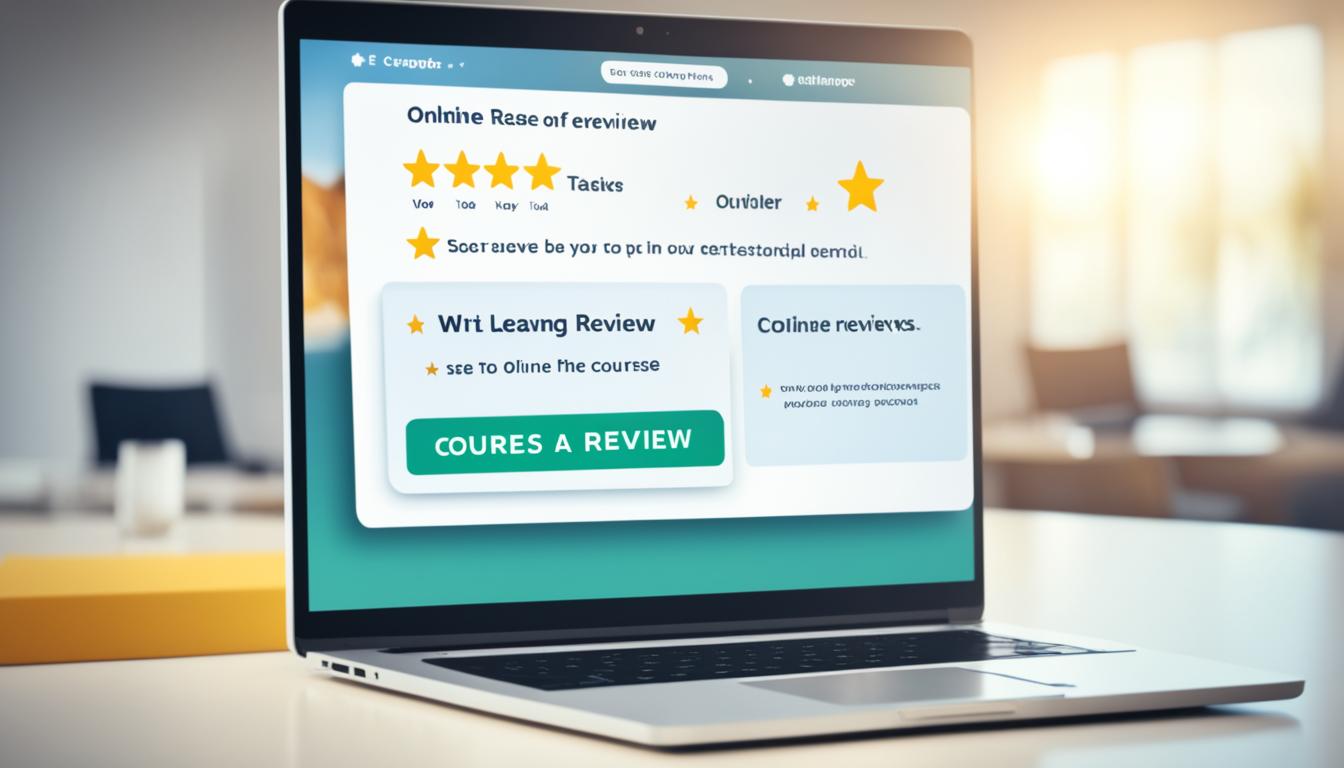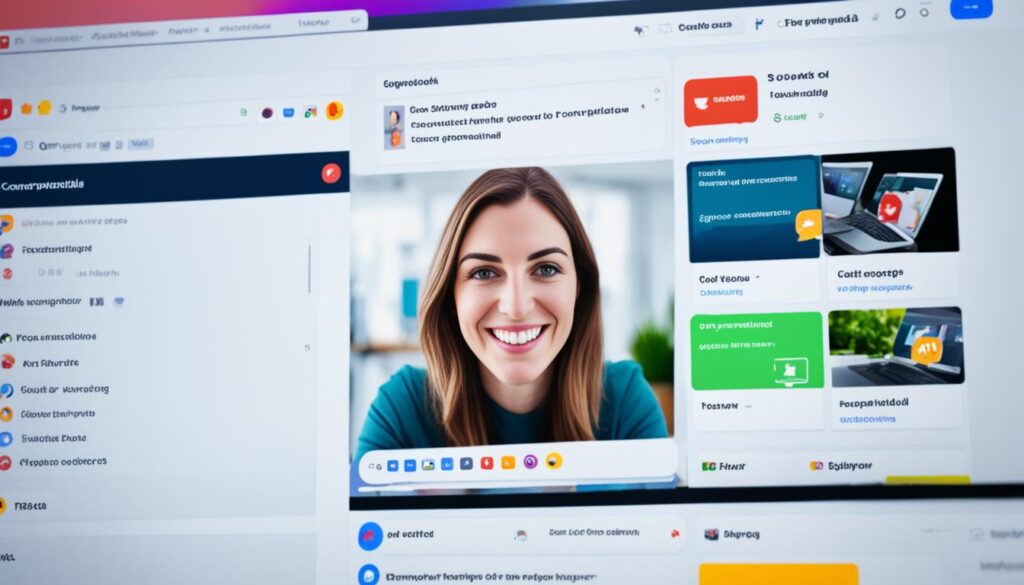Physical Address
304 North Cardinal St.
Dorchester Center, MA 02124
Physical Address
304 North Cardinal St.
Dorchester Center, MA 02124

Unlock the power of testimonials to boost your online course's credibility. Learn proven strategies to get genuine, impactful testimonials from satisfied students.
Testimonials are a powerful part of any online course marketing. Experts say they can significantly boost your sales. Why? Because people look for proof that others have found the course valuable. This way, they know the course is worth their time and money.
If your course is new and lacks testimonials, there’s a solution. Start with beta testers. These could be friends or past clients. They get to try your course first. In return, give them a discount or free access. Make sure to reach out to them directly and offer a reward. This helps get their feedback and a positive testimonial.
Testimonials are key when selling online courses or services. People want to know other buyers have found success. They help make the offering look trustworthy and credible. After all, nobody wants to be the first to try something.
Research shows testimonials really affect what customers choose. Good customer reviews are particularly important for courses or services that cost a lot. They make the potential buyers feel more secure in their choices.
When testimonials have clear “Before,” “During,” and “After” parts, they’re more powerful. These details can make the product’s benefits stand out. It’s a smart way to use social proof to improve how you market your course online.
Launching a new online course? Start with beta testers. They might be friends, fans, or past clients. These people will test your course for a lower price or for free. This helps you get early beta testimonials that boost your course’s trust and credibility.
When looking for beta testers, reaching out personally is key. Send messages that feel unique to them. Instead of mass emails, craft your messages to fit each person. This makes them more likely to join.
Want to get good feedback from your beta testers? Give them good incentives. Offer a big discount, special course content, or a free coaching session. With valuable incentives, you show your beta testers you appreciate them.

When asking for testimonials, guide your customers. Help them share their story by following a clear path. Effective testimonials talk about the customer’s journey and the results.
Start by asking what challenge or problem they were dealing with. This sets the scene for how your course made a difference for them.
Then, see how your course aided them. They might mention the specific ways your course content or setup helped with their issue.
Finally, ask what concrete results they saw after your course. This gives strong evidence for potential customers.
By focusing on these questions, you’ll get testimonials that show your course’s real impact. This helps future customers see its value.
When talking about concise testimonials, remember: an understated approach is key. Experts say testimonials should be brief, like 3-4 lines or about 50 words. This is because short testimonials catch people’s attention better than long ones.
It’s key to keep customer quotes real but focused. Feel free to trim down what they say to highlight essential points and outcomes. The aim is to shine a light on results, tackle common issues, and cut what’s not needed.
By shortening and fine-tuning the testimonials, their power is increased. They bring out the true worth of your online course or service better. This approach helps grab the visitors’ attention and keeps them interested longer.
When collecting testimonials for your online course, adding key details about the person is key. It makes the testimonial real and easy to connect with for potential buyers.
The advice is to include the client’s role, the company’s name, or personal situations. For instance, you might show a testimonial from “Lagertha Lothbrok // Director of Marketing, Kattegat Corporation” or “Lagertha Lothbrok // Busy mom of two kids.” This adds trust and lets buyers see how the course could help people like them.
Adding testimonial details like professional titles and life situations boosts trust in the social proof. Buyers are more likely to feel a connection and trust testimonials that are relatable. It’s a solid approach for your sales pages.
The first source talks about how photos make testimonials more eye-catching on sales pages. They add an authentic feel to the feedback. It’s suggested to cut them into a 200×200 circle. You should ask clients for their best headshot or pick one from their online profiles (with their okay).
Using testimonial photos makes a course’s social proof stronger and more appealing. People are more likely to trust and connect with real faces from testimonials. These visuals help your course seem more trustworthy and can lead to more sales.
When you gather testimonials, make sure they include high-quality headshots. This improves your page’s look and adds realness to the feedback. Showing these testimonial photos boosts your course’s social proof and bolsters its appeal with a strong visual impact.

Gathering honest testimonials is key for those who make online courses. The third source shares great ways to get useful customer feedback and learn how to market your course better.
One way is to use messages on email, SMS, or social media. You ask people who bought your course to share their thoughts. This helps keep a flow of customer feedback coming, which you can use in your ads.
Creating discussions on social media is also smart. It gets your students talking about their experiences. This can lead to getting testimonials from those who are really happy with your course.
Speaking directly with students can also work. If someone loves your course, you might ask them personally to share their good thoughts. This can make your testimonials stand out.
Also, you can add a “Testimonials” button at the end of your course. It makes it easy for students to give feedback. This way, you can catch their comments when they’re still excited about your course.
Using these strategies, you can get the social proof and insights you need. This can help more people join your online courses and keep them there.
In making the testimonial collection process smoother, using testimonial automation and testimonial collection tools is key. The third source notes that simplifying this task gathers more feedback from happy customers.
Testimonial.to is recommended for this. It features a widget easy to share with customers. It allows for quick collection of text or video testimonials. What’s cool is that it lets you add questions. This helps get detailed testimonials, showing your customers’ real experiences.
With tools like Testimonial.to, the job of collecting feedback gets easier. You can streamline the process and create a strong customer feedback archive. This can be shown on your site, social media, or in marketing. It boosts your trust level and helps customers judge your online courses better.

One idea is to offer testimonial incentives to get more customer feedback. This works well if your first asks for testimonials aren’t working. You could offer extra course parts, discounts on other classes, free digital items, or gift cards.
But, it’s not good to buy reviews or fake stories. Instead, ask real customers to share their true feelings and stories.
A rewards program helps get more customer feedback. It gives customers real benefits for sharing their thoughts. This improves your marketing and shows you care about customer happiness.
| Incentive Type | Potential Benefits |
|---|---|
| Extra Course Modules | Provides additional value and encourages continued engagement with the course |
| Discounts on Other Programs | Offers customers a financial incentive to share their experience and try additional offerings |
| Free Digital Products | Delivers complementary resources that enhance the customer’s overall experience |
| Gift Cards | Provides a tangible reward that customers can use for their own benefit |
“Offering the right testimonial incentives can go a long way in encouraging customers to share their genuine experiences and help you build a robust library of social proof.”
Testimonials play a key role in the online course marketing scene. They offer social proof and boost the credibility of a course. To use them well, reach out to beta testers and aim for specific, brief testimonials. Also, tools like Testimonial.to can help. This way, your course can stand out more to its target audience.
Collecting testimonials is just the start. You must display them well on your website and social media. Letting others see customer reviews and how past students really felt can build trust. This, in turn, boosts your online course sales and helps your brand’s image.

Testimonials are vital for getting more responses. Using Testimonial.to makes it simple. It has an easy widget where clients can easily add testimonials, text, or videos. This testimonial automation makes it quick for course creators to collect feedback.
Testimonial.to lets you customize how you collect testimonials. You can add questions or prompts, which makes feedback more detailed and helpful. This testimonial collection tool ensures feedback talks about the customer’s journey and specific course benefits. It makes the job of getting testimonials easier so course creators can focus on showing off those meaningful testimonials.
For online course marketers, Testimonial.to is a must-have. It changes the game by making it easy for clients to share their stories. This way, course creators can get more genuine testimonials. These testimonials help to build trust and drive more sales.